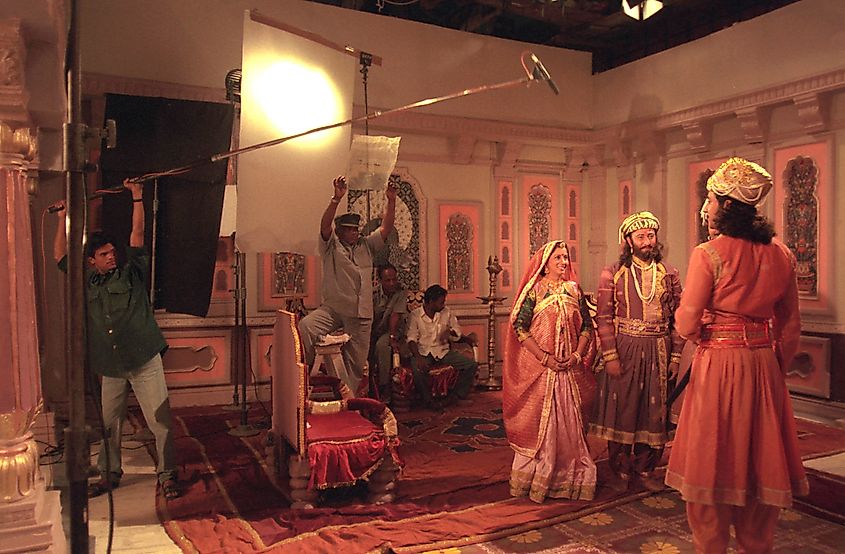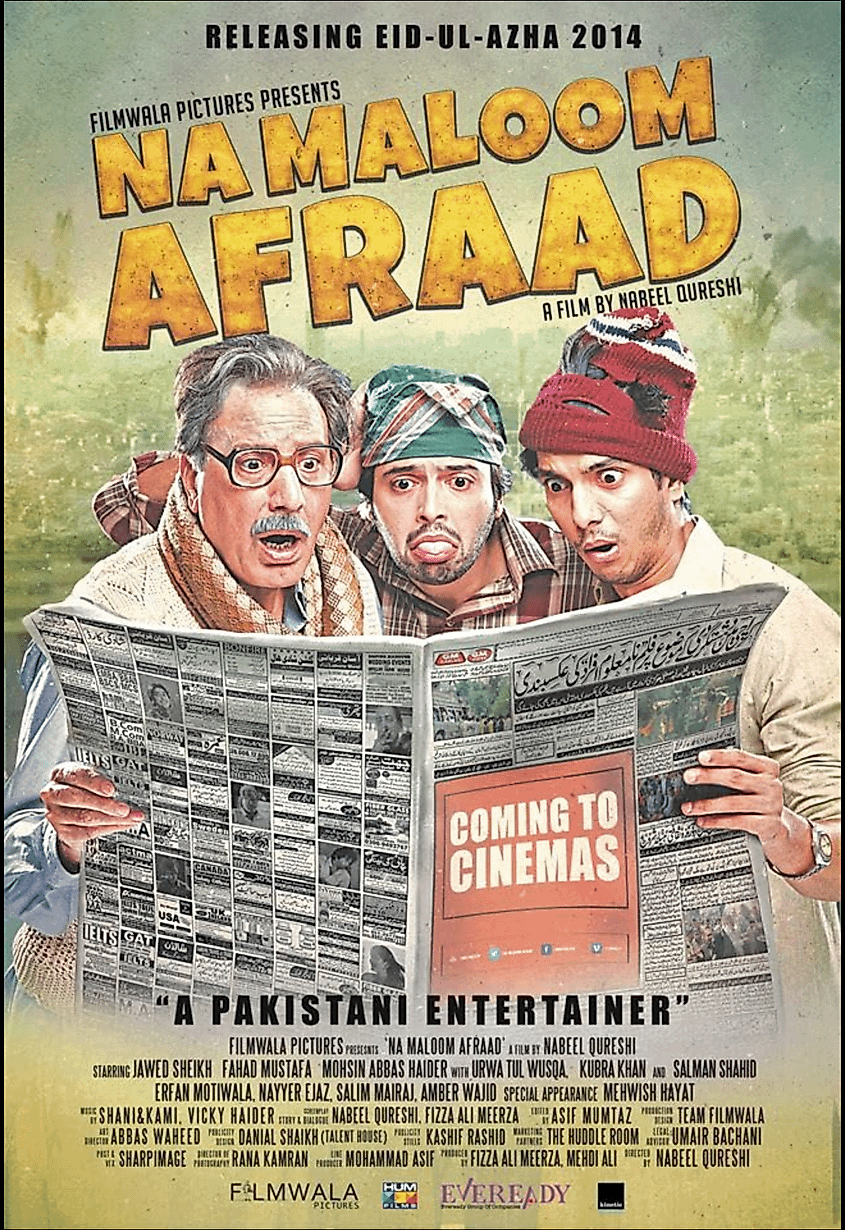
Bollywood, Pollywood, Tollywood, And More Film Industry Nicknames Around The World
The film industry, also known as the motion picture industry, encompasses the technological and commercial institutions involved in filmmaking. These include production companies, studios, screenwriters, actors, crews, and directors. The United States’ film industry—commonly referred to as Hollywood—has long dominated global cinema, shaping trends and influencing filmmaking worldwide. Producing hundreds of movies each year, Hollywood remains the leading source of commercially successful films. Its global appeal is strengthened by the widespread use of English, while even markets with strict censorship, such as China, have embraced many of its productions. The success and influence of Hollywood have inspired several international film industries to adopt names modeled after it.
Bollywood

Bollywood, formally referred to as Hindi cinema and based in Mumbai, remains the largest segment of the Indian film industry, producing approximately 44% of the country's total film output as of 2023. India produces around 1,500 to 2,000 films every year across more than 20 languages—making it the world’s most prolific film producer. In terms of revenue, Bollywood continues to command a leading share of India's net box office, holding approximately 44–45%, while regional industries like Telugu and Tamil collectively account for a growing portion.

In 2023, the Hindi film industry achieved a notable revival, grossing about US $1.3 billion at the box office. Major global successes included Dangal (2016), which earned over US $233 million overseas, and recent blockbusters like Jawan, Pathaan, and Animal, each crossing the ₹900–1,150 crore mark worldwide. Bollywood’s musical influence is also profound—its film soundtracks contribute roughly 80% of the nation’s music industry revenue.

An emerging powerhouse within Bollywood, Jio Studios, accounted for over 40% of the Hindi film industry's net box office in FY 2025, with earnings surpassing ₹1,000 crore. These figures reflect Bollywood's enduring commercial might and cultural impact both within India and across the globe.
Pollywood
Pollywood—the dynamic Punjabi-language film industry spanning India and Pakistan—has evolved from producing just five films in 1997 to churning out over 100 films annually by 2022. Its financial and cultural influence has grown in parallel. Today, approximately 50% of the revenue for successful Punjabi films stems from overseas markets, which include Canada, the UK, Australia, and the US. Industry revenues now exceed ₹1,200 crore globally.

Blockbusters like The Legend of Maula Jatt , Jatt & Juliet 3, and Carry On Jatta 3 have set new performance standards. The 2025 release of Sardaar Ji 3 skyrocketed Pollywood further by making it the highest-performing Punjabi film abroad and the second-biggest at Pakistan’s box office.
Beyond numbers, Pollywood has left an indelible mark on Punjabi culture. Its films celebrate language, traditions, and values, while boldly confronting societal challenges such as drug abuse and identity. They also serve as a cultural anchor for the global Punjabi diaspora, bonding generations through humor, music, and shared heritage.
Lollywood
Lollywood—the portmanteau combining Lahore and Hollywood—is the traditional epicenter of Pakistan’s Urdu and Punjabi cinema. Established in 1929 with the United Players’ Studio by Abdul Rashid Kardar, Lollywood enjoyed its golden age in the 1960s and 1970s, producing more than 200 films a year.
But decades of political instability, censorship, and competition from television and video piracy severely weakened the industry. By the 1990s, only 11 studios remained active, producing around 40 films annually, with independent filmmakers bearing the brunt of systemic decline.

A renaissance arrived in the 2010s, powered by innovative directors and genre-expanding narratives. Films like Waar, Na Maloom Afraad, and The System signaled a vibrant comeback. The crowning achievement came with The Legend of Maula Jatt (2022), which became Pakistan’s highest-grossing film ever surpassing benchmarks and reviving national cinematic prestige.
Chhollywood
Chhollywood—Chhattisgarh’s Chhattisgarhi-language film industry—originated with Kahi Debe Sandesh in 1965, a socially bold film that prefigured the regional cinema movement. After a long lull, it was revitalized by Satish Jain’s Mor Chhainha Bhuinya (2000), whose commercial success aligned closely with the creation of the state itself. The mid-2000s witnessed further enthusiasm with films like Bhakla, Mayaa, Tura Rikshawala, and Laila Tip Top Chhaila Angutha Chhap, alongside internationally recognized works such as Bhulan: The Maze.

Today, Chhollywood thrives with low-cost digital production, strong in-state box office performance, and pioneering film franchises like Mor Chhainha Bhuinya 2 and 3. It continues to showcase Chhattisgarh’s culture, stories, and creative ambitions on and beyond regional screens.
Conclusion
Hollywood has not only influenced film industries in Asia but also the world over. Most of the film industries have associated with Hollywood to promote and market their films both locally and abroad. The strategy has worked because of the quality films that met the audience’s expectations.
Film Industries Around The World With Hollywood Inspired Nicknames
| Rank | Film Industry | Base Location |
|---|---|---|
| 1 | Bollywood | Mumbai-based Hindi language film industry, India |
| 2 | Pollywood | Punjabi language film industry in India and Pakistan |
| 3 | Lollywood. | Urdu and Punjabi films of Pakistani film industry in Lahore. |
| 4 | Chhollywood | Chhattisgarhi language film industry based in Chhattisgarh, India |
| 5 | Tollywood | Bengali film industry in West Bengal, India/Telugu film industry in Andhra Pradesh and Telangana. |
| 6 | Kollywood | Tamil language film industry, based in Chennai, India./Nepal’s film industry |
| 7 | Mollywood | Malayalam film industry in Kerala, India |
| 8 | Sandalwood | Kannada language film industry in Karnataka, India. |
| 9 | Jollywood | Assamese language film industry in Guwahati, Assam |
| 10 | Ollywood | Film industry of Orissa, India in Oriya language |
| 11 | Sollywood y. | Sindhi film industry |
| 12 | Dhaliwood | Film industry of Bangladesh |
| 13 | Kariwood | Karachi based film industry of Pakistan |
| 14 | Kaliwood | Nepali cinema based in Kathmandu |
| 15 | Dhollywood | Film industry based in Gujarat, India in the Gujarati language |
| 16 | Ghollywood | Film industry in Ghana |
| 17 | Hillywood | Film industry in Rwanda |
| 18 | Kannywood | Film industry based in Kano, Nigeria |
| 19 | Nollywood | Film industry based in Lagos, Nigeria |
| 20 | Riverwood | Film industry in Kenya |
| 21 | Sollywood | Film industry in Sierra Leone |
| 22 | Swahiliwood | Cinema in Tanzania |
| 23 | Ugawood | Film industry based in Uganda |
| 24 | Zollyuwood | Cinema of Zimbabwe |
| 25 | Chollywood | Peruvian film industry |
| 26 | Mollywood | Mormon film industry in the US |
| 27 | Hallyuwood | South Korean cinema |











